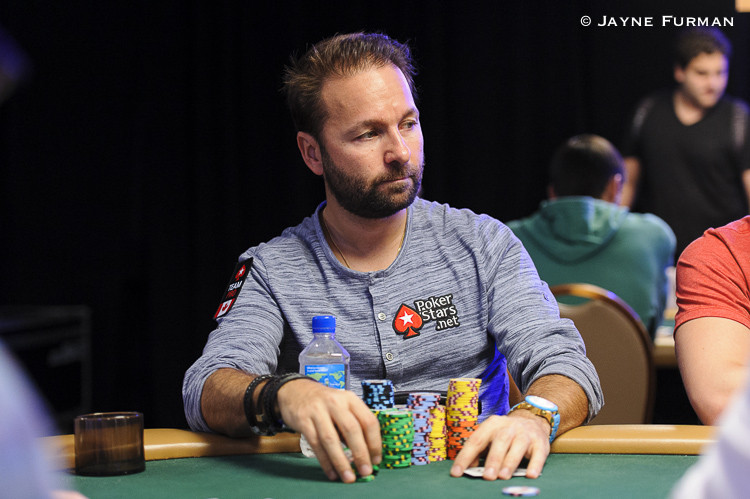Full Tilt Poker Money Laundering
Prosecutors claimed the operators of Pokerstars, Full Tilt Poker and Absolute Poker – three of the most popular online poker sites – tricked US banks into processing billions of dollars from. Online gambling is illegal in the US and according to the subpoena the investigation is examining whether gambling and money-laundering laws have been broken. FBI agents or prosecutors have spoken to at least two people involved in disputes with Full Tilt, paying special attention to the possibility of money-laundering violations, those familiar with the inquiry say.
Ray Bitar is back in the news.
The former boss at the once notorious Full Tilt Poker laundered millions through the island of Guernsey, located between the U.K. and France, and now that money is heading over to the U.S., according to a report from the BBC.
Bitar reportedly used the self-governing British Crown dependency to stash cash from the online gambling platform. The U.S. and Guernsey worked together to locate the money, and they shared the proceeds under a 2015 deal, the report said.
The U.S. Treasury Department received £9.5m (about $12.6 million USD).
The island’s government froze bank accounts and provided financial records between 2012 and 2015 to help authorities in the U.S. seize the assets, said the report.
Bitar pleaded guilty in April 2013 to violation of the Unlawful Internet Gambling Enforcement Act and conspiracy to commit bank and wire fraud. He was facing decades in prison. The judge in the case spared him prison because he needed a heart transplant, saying that Bitar going behind bars could be a “death sentence.” Bitar forfeited $40 million to the government as part of his plea deal, which did not include admitting to stealing from former customers of the site.
More than $300 million of player money went missing after the site shut down. About $160 million belonged to Americans, according to the federal government. As of last year, 94 percent of all petitions filed to reclaim Full Tilt Poker money had resulted in payment.
Those successful petitions amounted to roughly $112 million.
Full Tilt Poker Money Laundering Games
Preet Bharara, the United States Attorney for the Southern District of New York, announced Tuesday that a motion has been filed to amend the civil money laundering complaint against PokerStars, Full Tilt Poker, Absolute Poker, and related payment processors (the Black Friday civil complaint). The amendment adds three Full Tilt Poker principals – Howard Lederer, Rafe Furst, and Chris Ferguson – and alleges that these men, along with Full Tilt founder Ray Bitar and other co-owners, were paid millions upon millions of dollars by the company, money which came from player deposits that should never have been used for company operations.
In a press release, Preet Bharara said, “As the proposed Amended Complaint describes in detail, Full Tilt was not a legitimate poker company, but a global Ponzi scheme. As a result of our enforcement actions this alleged self-dealing scheme came to light. Not only did the firm orchestrate a massive fraud against the U.S. banking system, as previously alleged, Full Tilt also cheated and abused its own players to the tune of hundreds of millions of dollars. As described, Full Tilt insiders lined their own pockets with funds picked from the pockets of their most loyal customers while blithely lying to both players and the public alike about the safety and security of the money deposited with the company.”
Online poker rooms are supposed to keep player funds segregated from operating funds, meaning that any money deposited by players must be used only to distribute to players when they request a cashout. According to the amended complaint, Full Tilt Poker ignored this rule, distributing almost half a billion dollars to Board members and owners, much of which came straight from players’ accounts.
Between April 2007 and April 2011, the U.S. Attorney’s Office alleges approximately $443,860,529.89 was paid out to Board members and owners. Of that sum, the following amounts were allegedly received by the company’s principals:
• Ray Bitar – $41 million
• Howard Lederer – $42 million
• Rafe Furst – $11.7 million
• Chris Ferguson – $25 million (at least), with over $62 million “owed” to him.


The other 19 owners received the remainder of the approximately $443,860,530, with one (unnamed) owner receiving approximately $40,078,646.64 plus millions of dollars in loans, approximately $4.4 million of which have not been repaid.

On top of this, Full Tilt faced a gigantic and growing shortfall in 2010, as it had trouble finding payment processors to act as middlemen between customers’ bank accounts and the poker room. As such, when customers initiated a deposit, Full Tilt credited their poker accounts with the money despite not actually being able to collect those funds from players’ bank accounts. Thus, there was “phantom” money sitting in poker accounts, money that was quickly moved amongst players as they won and lost at the poker tables. Full Tilt went ahead and credited players with this money in order to “maintain its false image of financial security,” according to the press release. All told, Full Tilt credited approximately $130 million to player accounts that it didn’t actually have.
Full Tilt Poker Money Laundering Money
Much of this is likely not all that surprising to many in the poker community, as most of the financial sleight of hand was already known or highly suspected. What may come as a shock, however, was that even after Black Friday, the scheme of using player funds to pay company owners continued, this time without ongoing U.S. customer deposits from which to draw. After April 15, 2011, Full Tilt owed players worldwide over $300 million, though it could barely cover the tiniest fraction of that. The amended complaint states that in early June, Lederer informed others at Full Tilt that the company had only about $6 million on hand.
Bitar knew, as well. Page 75 of the amended complaint reads, in part:
“Full Tilt Poker’s CEO, Bitar, was well aware of the need for new deposits after April 15, 2011, and knew that even a few million dollars of unexpected withdrawals could reveal Full Tilt Poker’s true financial situation. For example, in an internal Full Tilt Poker e-mail dated June 12, 2011, Bitarvexpressed concern that a company announcement regarding lay-offs and the Board (including himself) being replaced would be seen as bad news, which would cause a ‘new run on the bank,’ adding that ‘it could be a huge run’ and that ‘at this point we can’t even take a five million run.’”
Full Tilt Poker Money Laundering No Deposit

Full Tilt Poker Money Laundering Rules
The U.S. Department of Justice, in addition to the money forfeitures and civil money laundering penalties in the original complaint, is now going after Ferguson, Bitar, Lederer, and Furst, seeking the forfeiture of the money they received from the company, along with civil money laundering penalties.